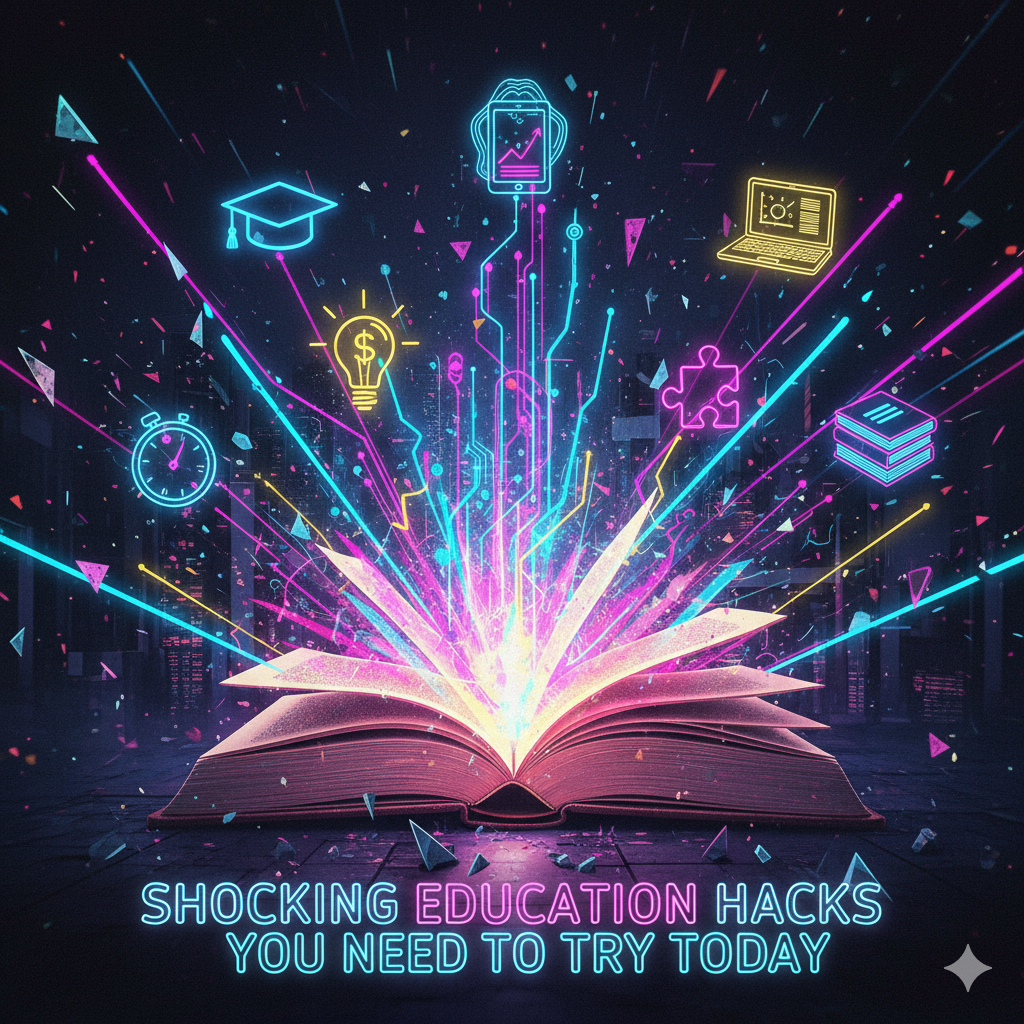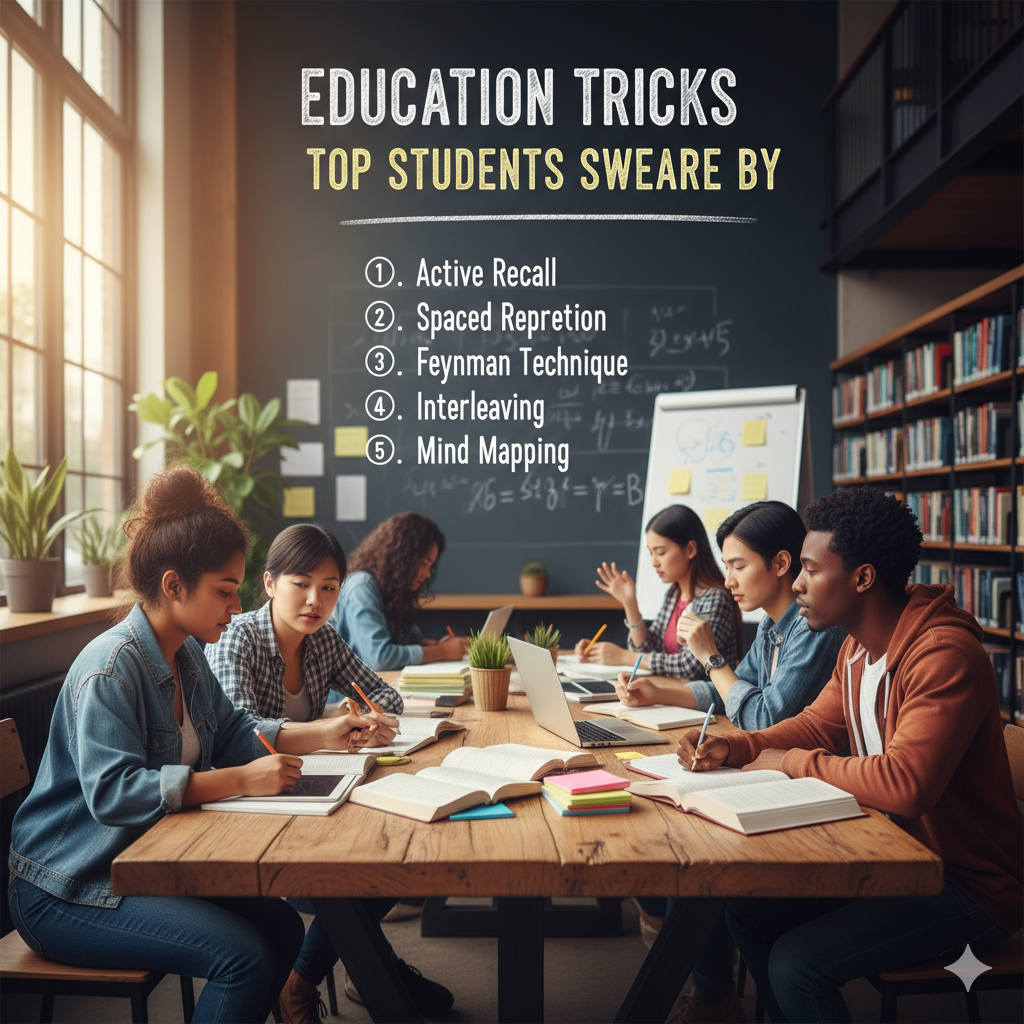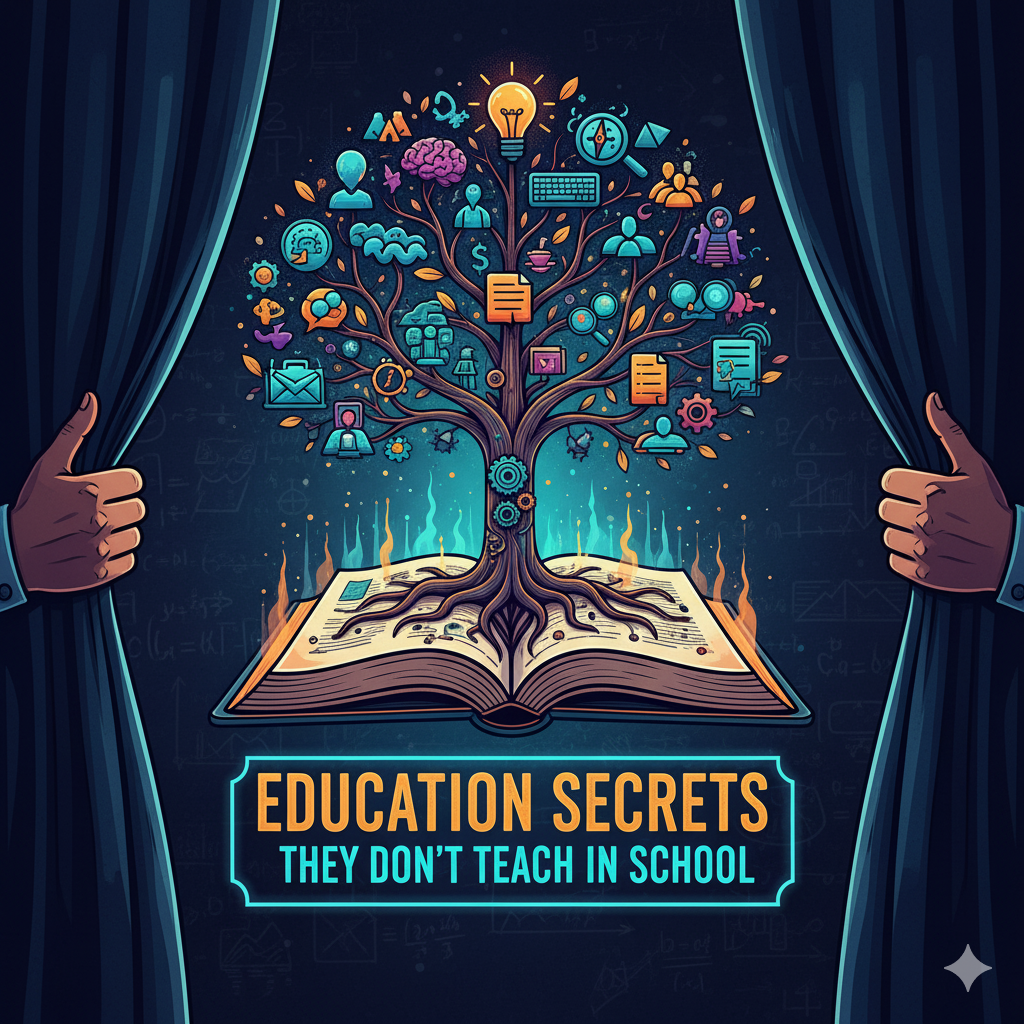Education is evolving faster than ever, and at romaniawire, we believe that learning should never feel boring or overwhelming. Today’s students, professionals, and lifelong learners are constantly looking for shortcuts to make studying easier, faster, and more effective. Luckily, there are clever techniques — or as we like to call them, education hacks — that can completely transform the way you approach learning. These hacks aren’t just trendy; they’re science-backed methods that can save you time, improve your memory, and keep you motivated.
Whether you’re preparing for an important exam, upgrading your professional skills, or simply trying to pick up a new hobby, this article will reveal practical tips that can change your study routine forever. Get ready to be surprised by how simple adjustments can skyrocket your learning potential.
The Power of Smart Learning
Why Traditional Studying Often Fails
Most students are taught to cram information before exams, spending late nights memorizing notes and highlighting textbooks. Unfortunately, this approach doesn’t work well for long-term retention. Our brains are not designed to absorb large amounts of data all at once — which is why you often forget most of what you studied right after the test.
The Shift Toward Active Learning
Active learning involves engaging with the material rather than passively reading or listening. Techniques such as practice questions, teaching someone else, and creating visual mind maps can dramatically improve memory retention and comprehension.
Game-Changing Study Hacks
Use the Pomodoro Technique
One of the most effective hacks is the Pomodoro Technique. Break your study time into 25-minute focused sessions followed by a 5-minute break. After four sessions, take a longer 15-20 minute break. This method prevents mental fatigue, keeps you focused, and makes even difficult topics manageable.
Leverage the Power of Spaced Repetition
Spaced repetition is a scientifically proven memory booster. Instead of cramming, review material at increasing intervals over time. Apps like Anki or Quizlet use this principle to help learners retain knowledge longer.
Teach What You Learn
When you explain a topic to someone else, you reinforce your understanding. This is called the Feynman Technique. By breaking down complex ideas into simple terms, you expose gaps in your knowledge and strengthen memory pathways.
Digital Tools That Make Learning Easier
Note-Taking Apps You Should Try
Forget about carrying multiple notebooks. Tools like Notion, Evernote, and OneNote allow you to organize your study material, add images, record audio, and even collaborate with classmates.
Mind-Mapping Software for Better Connections
MindMeister and XMind can help you visualize complex ideas by creating diagrams that link concepts together. This is especially helpful for subjects like history, science, and business where understanding relationships is key.
AI-Powered Study Assistants
AI is changing education. Tools like ChatGPT, Grammarly, and QuillBot can help summarize long texts, improve writing, and even quiz you on key concepts. Using AI responsibly can save hours of effort and improve results.
Lifestyle Tweaks That Boost Brain Power
Prioritize Quality Sleep
Lack of sleep is one of the biggest enemies of learning. Sleep is when your brain consolidates memories. Aim for 7-9 hours of quality rest to retain information effectively.
Eat Brain-Friendly Foods
Nuts, berries, fish, and dark chocolate can improve memory and concentration. Stay hydrated and avoid too much caffeine, which can lead to crashes and anxiety.
Exercise to Supercharge Learning
Studies show that physical activity boosts brain function and reduces stress. Even a 10-minute walk before studying can enhance focus and creativity.
Motivation and Productivity Hacks
Set Micro-Goals
Breaking big tasks into smaller, actionable steps makes studying less overwhelming. Checking off small goals creates a sense of achievement and keeps motivation high.
Reward Yourself
Pair your study sessions with small rewards like your favorite snack, a short episode of a show, or a quick scroll through social media. Positive reinforcement keeps you coming back for more.
Use Study Playlists
Music can influence focus. Try instrumental, lo-fi, or classical playlists to create an ideal study atmosphere. Avoid lyrics if they distract you.
Social and Collaborative Learning
Form Accountability Groups
Studying with peers or having an accountability partner keeps you disciplined. Explaining concepts to each other helps you learn faster and spot mistakes.
Participate in Online Communities
Join forums, Discord groups, or Reddit communities related to your subject. Sharing resources and discussing topics with others can provide new insights and keep you motivated.
Overcoming Common Learning Roadblocks
Beating Procrastination
Use the “2-Minute Rule” — if a study task takes less than two minutes, do it immediately. Starting small helps break the inertia and often leads to longer study sessions.
Managing Distractions
Put your phone on silent, use website blockers for social media, and create a dedicated study space. Reducing interruptions improves deep work and shortens total study time.
Dealing with Burnout
Recognize when you’re overworking yourself. Take scheduled breaks, practice mindfulness, and don’t feel guilty about resting — recovery is part of the process.
FAQs
What is the fastest way to learn something new?
The fastest way is to combine active recall, spaced repetition, and teaching the material to someone else. This trio forces your brain to retrieve and store information efficiently.
Can AI really help me study better?
Yes, AI tools can summarize notes, generate quizzes, and even explain complex topics in simple terms. However, they should complement your learning, not replace it.
How many hours a day should I study?
It depends on your goals. For deep learning, 3-5 hours of focused study spread throughout the day is often enough. Quality matters more than quantity.
Are group studies better than solo study?
Both have benefits. Group studies encourage discussion and peer learning, while solo study allows deep focus. A combination of both is usually the most effective approach.
How can I stay motivated for months at a time?
Set clear goals, track your progress, celebrate small wins, and connect your learning to long-term benefits. Motivation grows when you see tangible results.
Conclusion
Learning doesn’t have to feel like a chore. With the right strategies, technology, and mindset, you can turn education into a rewarding and even enjoyable experience. The hacks we’ve shared here — from Pomodoro sessions and spaced repetition to AI-powered tools and lifestyle changes — can make a huge difference in your performance and confidence.
At romaniawire, we believe education should be smart, not stressful. Try out these techniques, experiment with different combinations, and find what works best for you. Your brain is capable of more than you think — it just needs the right approach to unlock its full potential.




